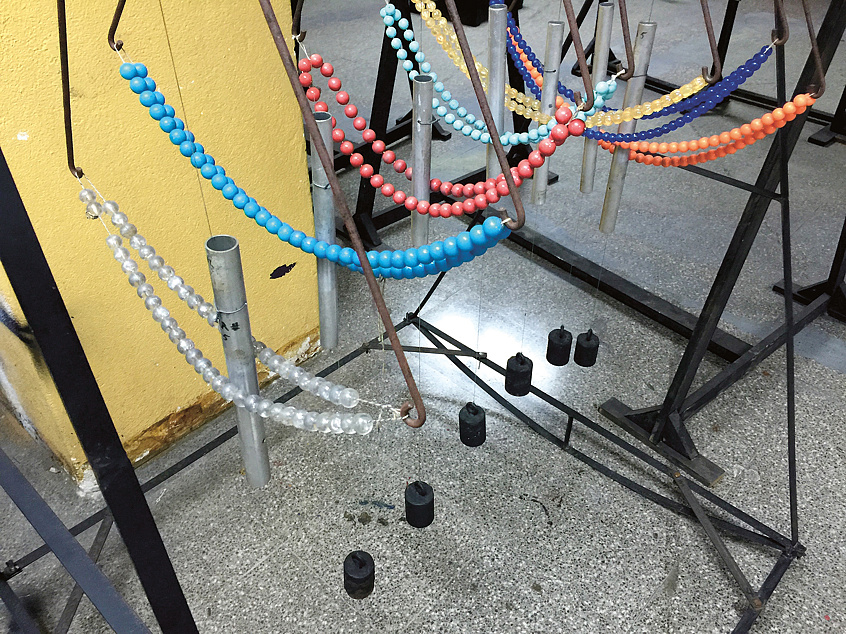My first encounter with Joaquín Orellana Mejía was in late May 2015, in his studio in Guatemala’s National Theater, amid his sound utensils (útiles sonoros). That the Guatemalan composer and innovator (born in 1930 in Guatemala City) would have used this culinary twist in naming his myriad variations on the marimba, Guatemala’s national instrument, which he began to develop upon returning from the Latin American Center for Advanced Musical Studies at the Instituto Torcuato Di Tella in Buenos Aires in December 1968, tells us something about his wry sense of humor. Learning that his lifetime goal (grasped as early as his 1971 Humanofonía) progressively evolved to “create the sound of hunger” tells us that his tone is as lyrical or felt as it is ludic. The sound utensils acquire another darkly ironic timbre when understood with this sense for hunger, though hunger itself can multiply to imply both deprivation and appetite.
Utensils, or útiles in Spanish, foreground usefulness—a quality that contemporary visual art has not exactly aspired to, haunted as it is by the dreams of autonomy that sprang from its avant-garde ancestors, while escaping instrumentalization by states, corporations, and all-too-powerful patrons. If considering the sound utensils as sculptures before and after listening to them goes some way toward giving Maestro Orellana’s inventions a fuller play, at documenta 14 they must also fulfill their role as instruments. This occurs on the occasion of the premiere of Sinfonía desde el Tercer Mundo (Symphony from the Third World).
A memory from the Second World, as the Eastern or Soviet Bloc used to be called in the Cold War era (now gone the way of the dodo): my grandfather attempts to teach me how to play spoons and tells me they came to us from poverty, but that this was the mother of invention. So be glad, find a rhythm, and for god’s sake make yourself useful!
Addressed as it is from the Third World, Orellana’s music continues to produce a richer sense of poverty, hunger, violence, suffering, good weather, good memory. In his music and his entire approach, Orellana serves the Third World’s social-sonorous circumstances with a challenge: great resourcefulness is expected of all those coming into contact with his work. His and many other lives—indeed the majority of lives on this planet—mean the First World can have its cake. But can this world eat and drink Orellana’s music too? And, can it do so without consuming it?
—Monika Szewczyk

